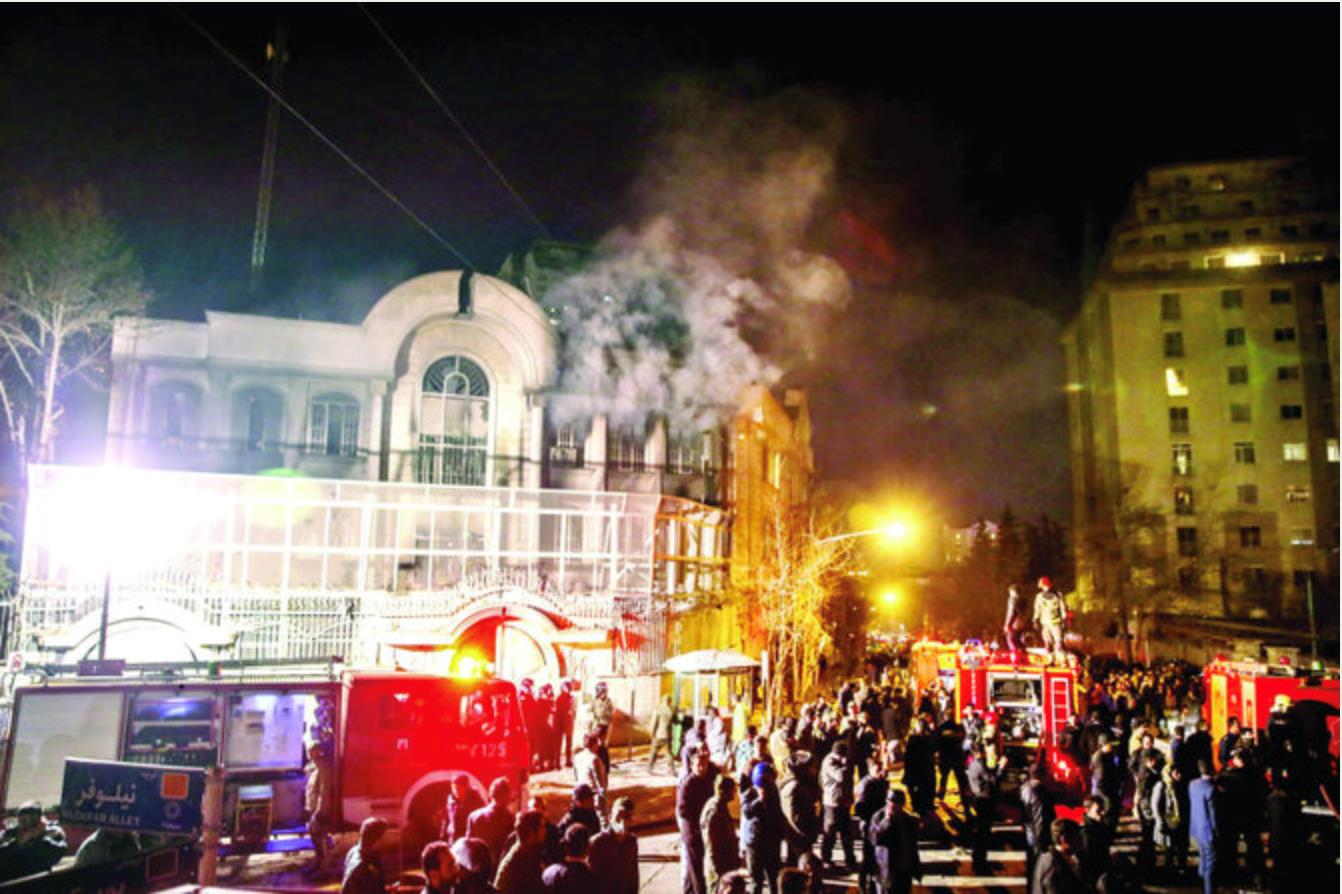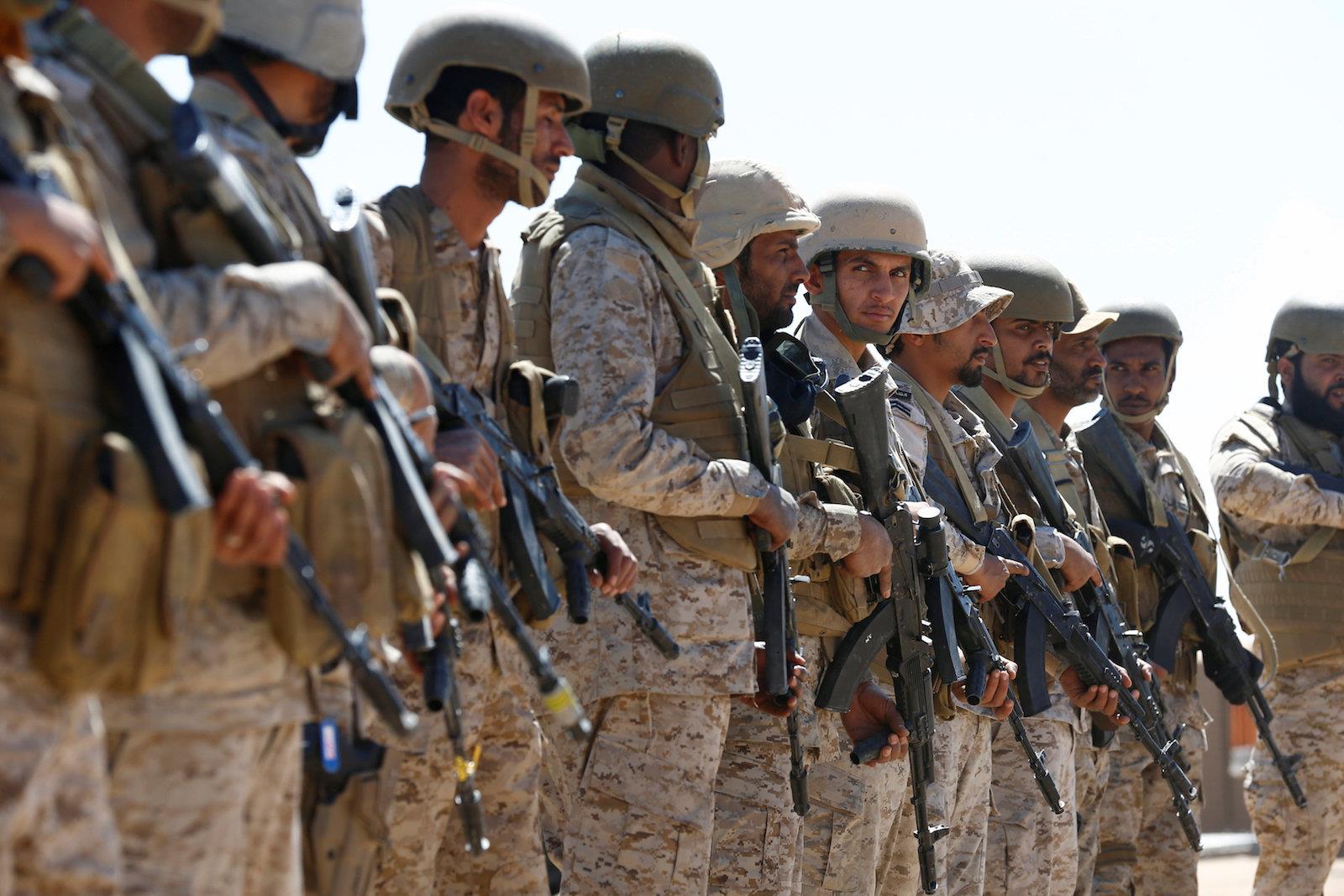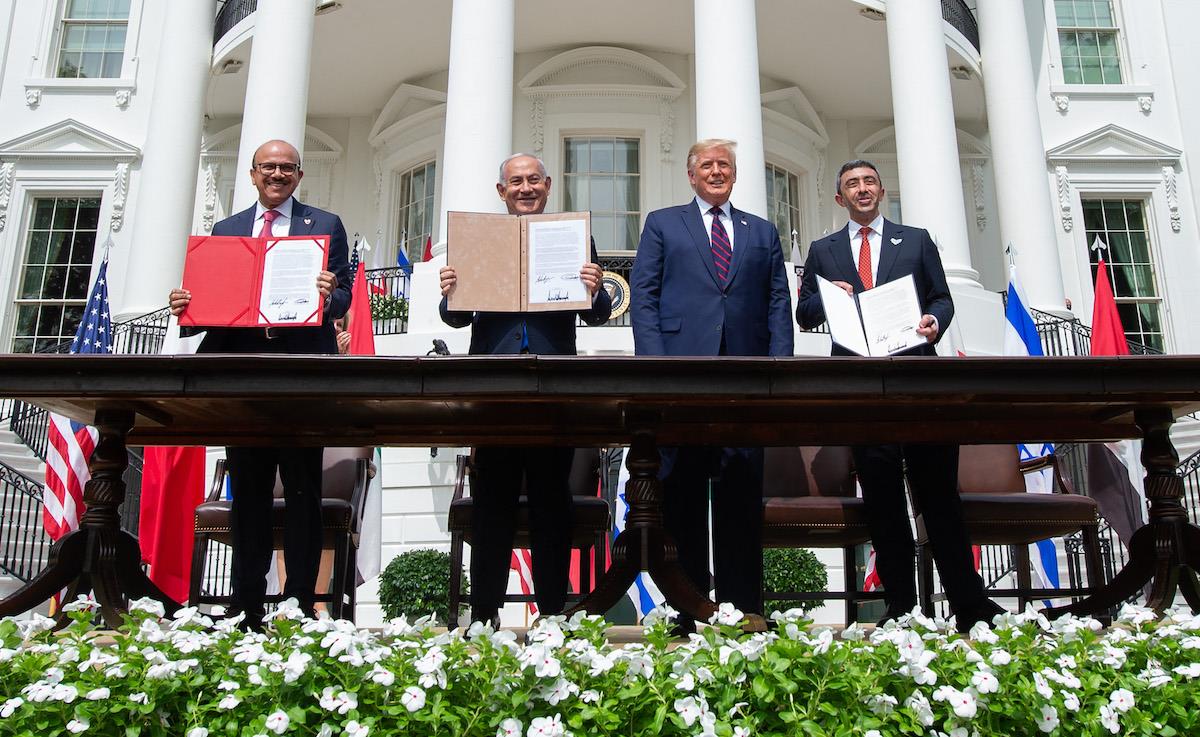(MENAFN- Asia Times) Iran and Saudi Arabia are inching towards a rapprochement that, if achieved, would profoundly shift the region's dynamics, diplomacy and stability. Officials from both sides have recently hailed backchannel talks held first in Iraq and now in Oman as“constructive.”
In May, Iraqi President Barham Salih confirmed his country had been hosting quiet talks between the two often bitter rivals. The talks, which started in April, have recently been attended by high-profile delegates, including Saudi chief of General Intelligence Directorate Khalid al-Humaidan and Iranian Deputy Secretary of the Supreme National Security Council Saeed Iravani.
The first symbolic breakthrough could be seen as early as next week. Iranian media have reported that Saudi Arabia has signaled it could send an envoy to attend President-elect Ebrahim Raisi's inauguration scheduled for August 5. If so, the diplomatic overture would mark a significant departure since the two sides broke off diplomatic relations in 2016.
Raisi, in his first press conference as president-elect on June 21, said there were no barriers to the reopening of Iranian and Saudi Arabian embassies, and Iran was prepared to embrace normalized ties with its predominantly Sunni neighbor. Burying the past, of course, won't be easy.
On January 2, 2016, an angry mob enraged by the Saudi kingdom's decision to execute dissident Shia cleric Sheikh Nimr al-Nimr stormed the Saudi embassy in Tehran and its consulate in the city of Mashhad, ransacked the offices, set the diplomatic compounds on fire and caused other substantial damage.
Saudi authorities responded by freezing diplomatic ties with Iran and expelling Iranian diplomats. Although Iranian-Saudi relations have been marked perennially by rivalry for the upper hand in the Middle East and wider Muslim world, the embassy saga marked a new nadir in bilateral ties.
Iran never formally apologized over the embassy attack, even though President Hassan Rouhani decried the incident, saying in a message,“the action taken by a group of extremists in Tehran and Mashhad, causing damage to the embassy and consulate of Saudi Arabia, which should be religiously and legally in safety under the protection of the Islamic Republic of Iran, is by no means justifiable.”
Upon Rouhani's instruction, the Ministry of Interior and Ministry of Intelligence opened investigations into the incident, and 40 people involved in the siege were eventually arrested. Yet, these gestures failed to pacify Saudi Arabia, which has long opposed Iran's alleged interference in the affairs of Arab nations and its destabilizing role in the wider Persian Gulf.

Flames rise from Saudi Arabia's Embassy after it was stormed by Iranian protesters during a demonstration in Tehran on January 2, 2016. Photo: Agencies / Stringer
The larger bilateral conflict was sparked when Saudi Arabia initiated a bombing campaign on Yemen in March 2015, where the Islamic Republic had been siding with and backing Houthi rebels opposed to the internationally recognized government of President Abd-Rabbu Mansour Hadi.
Houthis are a Zaydi Shiite minority that emerged as a resistance movement against the corruption of Yemen's deposed President Ali Abdullah Saleh, who they believed plundered and stashed the resources of the impoverished Arab country to serve his inner circle and family, like the other Arab dictators in Egypt, Tunisia and Syria. They also resented the United States and Saudi Arabia's sponsorship of the autocratic leader.
As the Arab Spring protests spread to Yemen in 2011, Houthis instigated an uprising against Saleh, causing him to resign in February 2012. Saleh's deputy, Abd-Rabbu Mansour Hadi, took power, but Houthis were still disgruntled as they had no share of power.
They thus moved to expand their ties with Iran. Direct air traffic linking Tehran and Sanaa was launched, and Iran committed discounted oil to the insurgents, who in 2014 took control of the Yemeni capital, motivating Saudi Arabia to unleash airstrikes in support of the government.
The ongoing cataclysm in Yemen has been described as the worst humanitarian disaster worldwide, resulting in at least 130,000 fatalities. Meanwhile, a chronic famine has elevated the vulnerability of Yemen's malnourished, destitute population in the time of Covid with no access to vaccines or reliable healthcare.
Saudi Arabia has so far refused to suspend its military operations, and Iran continues to supply drones, surface-to-air missiles, explosives and ammunition as well as financial aid to the Houthis, amounting to at least $10-15 million annually since 2010. The Yemeni question is the major fault line in Iran-Saudi Arabia relations, and the crisis will be a major roadblock to the normalization of ties.
Ali Bakir, an assistant professor at the Ibn Khaldon Center for Humanities and Social Sciences, Qatar University, says any prospective reconciliation between Iran and Saudi Arabia will require determination and commitment from both sides after years of debilitating proxy war.
“If it is realized, it will be an important development, yet it will depend on the will of the two countries to open a new page. From the Saudi perspective, Iran should take the initiative and show goodwill so that Riyadh can reciprocate. If such an intention exists in Iran, it would be the right time to reveal it.”
“Gulf countries in general and Saudi Arabia in particular see Iran as a threat. Tehran also believes that Riyadh is promoting an anti-Iran regional and international position. Both can demonstrate otherwise, yet it will require a political will and mutual concessions,” he told Asia Times.
“Yemen and Syria can be a good start for both. An Iranian pullout from Syria and a Saudi permanent halt for military operations in Yemen can have a transformative effect on the relations between the two states,” he added.

Saudi soldiers stand in line at an airfield where Saudi military cargo planes land to deliver aid in Marib, Yemen January 26, 2018. Photo: Agencies
Most observers of the region believe Saudi Arabia's military expedition in Yemen has been an unpopular quest, which has drained the kingdom's resources to largely no avail. They note the Biden administration, unlike Donald Trump, is not keen to continue America's de facto subsidizing of the war in Yemen through its ties to Saudi Arabia.
“Any agreement to be struck between both parties will have to suit the new foreign policy interests of the Biden administration. This includes ending the humanitarian crisis Yemen, which critics partly blame on the US, and returning to a broader platform promoting global human rights,” said Emran El-Badawi, program director and associate professor of Middle Eastern studies at the University of Houston.
“An agreement will also need to secure the passage of Saudi oil vessels through Persian Gulf, and ensure a future to Iran's nuclear energy program. Keep in mind the Covid-19 pandemic has deprived the kingdom of billions of dollars in Hajj revenue, and of cooperation with OIC [Organization of Islamic Cooperation] partners including Iran.”
“There is no limit to the extent of prospective reconciliation, but only time will tell,” he told Asia Times.
Dania Thafer, executive director of the Gulf International Forum in Washington, DC, also believes there is potential for achieving a Tehran-Riyadh understanding over Yemen, and they can further their engagement from there.
“Yemen does present a low-cost confidence-building opportunity where Saudi Arabia and Iran can agree on certain issues. Iranians can make an agreement on increasing the security of southern Saudi Arabia since they are the source of the Houthi missiles,” she said.
“However, an agreement would solve that issue but not the war in Yemen… the Houthis are sending missiles onto Saudi Arabia which is arguably an area of Iran's influence. Iran can put pressure on the Houthis to accept Saudi Arabia's ceasefire but they do not necessarily have full leverage to enforce it,” she told Asia Times.
A Tehran-Riyadh détente would be felt across the Middle East and beyond. That's particularly true for the Islamic Republic's arch-nemesis, Israel, which has been carving out a foothold at its doorstep through the Abraham Accords, which in 2020 normalized relations with the United Arab Emirates and later Bahrain.
Some experts believe if Iran and Saudi Arabia shelve their differences and reach an accommodation, the anticipated extension of the Abraham Accords to include the formalization of Saudi Arabia-Israel relations will likely be deferred.
Albert Wolf, an associate research fellow at Johns Hopkins School of Advanced International Studies, told Asia Times a Tehran-Riyadh could have a“spoiler effect” for Tel Aviv.

Left to right, Bahrain Foreign Minister Abdullatif al-Zayani, Israeli Prime Minister Benjamin Netanyahu, US President Donald Trump and UAE Foreign Minister Abdullah bin Zayed Al-Nahyan hold up the Abraham Accords. Photo: AFP / Saul Loeb
“A Saudi-Iranian détente can mean a couple of things for Israel. First, it can throw the possibility of Saudi recognition of Israel off the tracks completely. Second, Israel had been hoping to use the Abraham Accords as a means of containing Iran, and while some – but not all – states recognized Israel to contain Iran, a Saudi-Iranian détente could have a spoiler effect,” he said.
“Saudi-Iranian détente will mean that Saudi-Israeli relations are likely to remain covert for some time.”
“I believe there will be variegated responses throughout the Gulf. For example, given the recent dust-up between Saudi Arabia and UAE, it could very well intensify the security dilemma between the Emirates and Tehran. Other states, such as Qatar, will likely welcome the advent of a détente between Riyadh and Tehran,” he said.
Even with the possible renewal of diplomatic ties and abatement of hostilities, regional rivalry between the Islamic Republic and Saudi Arabia will persist due to their divergent geopolitical interests, leverage in global energy markets and ideological roots, analysts predict.
“Iran and Saudi Arabia need to come to an agreement to learn and live with each other. Neither is going anywhere – you can't change geography,” said Emma Soubrier, a visiting scholar at the Arab Gulf States Institute in Washington.
Soubrier, who is also an expert with the Forum on the Arms Trade, says such an agreement“probably means establishing what they can both commit to in order to maintain a common objective of a stable and secure Gulf.”
“Abiding by the same rules in terms of arms control and non-proliferation would help building confidence, and they could extend this to other powers that are active in the region, including UAE, Qatar, Israel, to name a few,” she told Asia Times.
MENAFN30072021000159011032ID1102541580